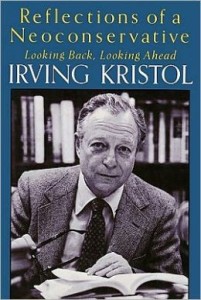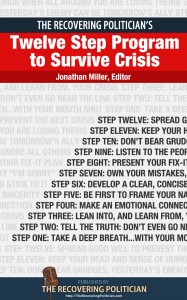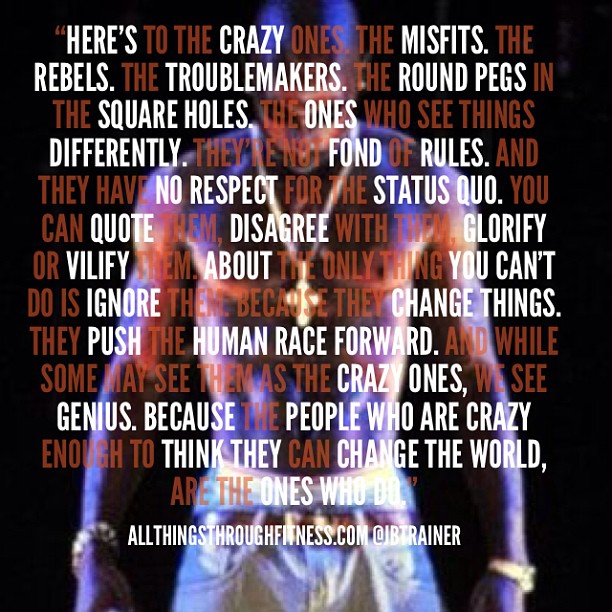By Erica and Matt Chua, on Mon Sep 9, 2013 at 1:30 PM ET After spending nearly three years on the road, we look back on all that we put up with to save a dollar. Were all the long bus rides and sleeping at airports worth it to keep the expenses in check?
HE SAID…
You’ll never hear me claim that there is a better way to travel than budget travel. Getting as close to the locals’ spending as possible is the best way to understand how their life is…and isn’t that why to travel? Not only the experiences, but also the differences between experiences in different places are enlightening. Exposing yourself to where the locals eat, stay and play will teach you more about a place than a tour ever would.
If I wanted something easy and comfortable I’d try to have that at home, not in some distant land. Why would I put my money towards temporary comfort instead of investing in permanent comfort? At home I want the most comfortable things possible, but on the road I want the most locally authentic experiences possible.
This does create some problems though. It’s caused us to end up in some places where I was deathly allergic to things. It’s led us to some pretty dirty places. It’s made us terribly sick. The romantic idea of living like a local is much better than it is in reality.

Here is one great example. We thought we had scored a great deal on a place to stay in Seoul, in a student building, on AirBnB. The listing made it clear that it could sleep two, evenings were quiet times, and there was free rice. They had me at the price, but I fell in love with the idea of free rice. See the photo above? That’s how we slept for three nights. On the fourth day I ran into the building manager, the same person who had checked us in, and he asked how we were sleeping. I responded that we were doing fine. Then he asked the key question, “would you like another mattress?” Why yes we would! How had he failed to mention this earlier, such as when the two of us checked in?
Read the rest of…
Erica and Matt Chua: Budget Travel Gripes
By John Y. Brown III, on Mon Sep 9, 2013 at 12:00 PM ET A note on Twerking.
Twerking, a word I was unfamiliar with until last week, is now officially part of the Oxford English Dictionary.
OK. Fine. It’s now officially a word. But before you start to think Twerking is something worthy of a week near the top of the news, think about it this way.
What if you or someone you know well became an accomplished Twerker?
 What if you or someone you know then became a very distinguished Twerker? What if you or someone you know then became a very distinguished Twerker?
And then what if, after several more years of training and practice, you or someone you know became the Best Twerker in the World?
Then what?
Would it really have been worth it? Or would you have been better off…..I dunno….doing something, like, well, other than Twerking? Even if it isn’t a word in the Oxford English Dictionary.
By Saul Kaplan, on Mon Sep 9, 2013 at 8:30 AM ET A friend asked me this week, what is the single most important thing holding our economy back? Without hesitation I said our psychology is bad and negativism is getting in the way. We have allowed cynicism to slow progress, growth, and innovation. I am as cynical as anyone. Here in New England we are born with a well-developed cynical streak. In my home state of Rhode Island we have taken the art of cynicism to entire new heights. I am convinced we won’t climb out of this economic mess until we become more confident in our selves, our communities, and our opportunities. Psychology matters. A strong innovation economy creating higher wage jobs result from the decisions made every day by organization leaders and entrepreneurs. It is the sum total of these decisions on the margin to hire one additional employee or to invest one additional dollar which determine the trajectory of our economy. While many factors influence these choices in the end it comes down to psychology or confidence. We must find a way to move beyond our cynicism.
The imperative is to unleash the animal spirits. John Maynard Keynes had it right in his book, The General Theory of Employment, Interest, and Money, when he described animal spirits as the emotion which influences human behavior measured in terms of consumer confidence. Keynes got the math right. Positive activities depend on spontaneous optimism rather than mathematical expectations. Our decisions to do something positive can only be taken as the result of animal spirits, a spontaneous urge to action rather than inaction, and not as the outcome of a weighted average of quantitative benefits multiplied by quantitative probabilities. Amen.
Keynes stood on the shoulders of earlier philosophers who also asserted that psychology matters. David Hume, one of the most important historical contributors to Western philosophy, has been credited with laying the foundation for cognitive science. In his seminal work, A Treatise of Human Nature, Hume lays out his framework for a naturalistic science of man that examines the psychological basis of human nature. His views in 1739 were heretical and in direct opposition to the prevailing views of the rationalists, exemplified by Descartes. Hume concluded that belief rather than reason governed human behavior. I love Hume’s famous quote, “Reason is, and ought only to be the slave of the passions.”
 Before accusing me of being Polyanna-ish (optimist for sure) or having my head stuck in a history book (only partially stuck) consider what is going on around you. Everybody is pointing at everybody else. It’s the government’s fault. It’s the big bad industrial complex. There isn’t enough resource to go around. Democrats and Republicans are beating each other up incessantly while nothing changes (a pox on both of their houses). Change is hard. Life isn’t fair. And so it goes. Add your barriers and excuses here. OK, Can we move beyond admiring the problem now? How we love to admire the problem. Enough already. Before accusing me of being Polyanna-ish (optimist for sure) or having my head stuck in a history book (only partially stuck) consider what is going on around you. Everybody is pointing at everybody else. It’s the government’s fault. It’s the big bad industrial complex. There isn’t enough resource to go around. Democrats and Republicans are beating each other up incessantly while nothing changes (a pox on both of their houses). Change is hard. Life isn’t fair. And so it goes. Add your barriers and excuses here. OK, Can we move beyond admiring the problem now? How we love to admire the problem. Enough already.
We have an incredible opportunity in front of us. We must overcome our cynicism and bring passion to the fore as we optimistically try more stuff. Sure there are challenges but we live in a technology rich era with an unprecedented opportunity to enable purposeful networks focused on solving the big issues of day. How about starting with health care, education, energy, and economic prosperity? If we are waiting for institutions to lead the way we are going to be waiting a very long time. Clay Shirky has it right in his recent books, Here Comes Everybody and Cognitive Surplus. We are connected, communicating, and leveraging social media platforms in powerful ways. Collectively we are blessed with a cognitive surplus that is huge, obvious, and accessible to solve real world problems and redefine how value is created, shared, and captured. We just need to get on with it. It is time to stop admiring the problem. The biggest obstacle in our way is a negative psychology and lack of confidence to act. Time to unleash the animal spirits.
By John Y. Brown III, on Fri Sep 6, 2013 at 12:00 PM ET Yesterday’s –first day jogging. Good news; bad news.
Bad news first. Ran just under 1/8th of a mile before capitulating.
Good news.
All things considered, it was a brisk oace for the entire 1/8th of a mile…except for the last 10-12 feet.
===
After yesterday’s Herculian workout, I feel am ready for the Tinsel Man Competition (Not to be confused with Iron Man).
 Iron Man regime: Iron Man regime:
Run 26.2 miles
Bike 112 miles
Swim 2.4 miles
Tinsel Man regime:
Run 1/8th of a mile from house
Walk 1/8th of a mile back to house
Shoot 2 baskets on backyard basketball goal–one jump shot and one lay-up (before going inside and showering)
By Julie Rath, on Fri Sep 6, 2013 at 8:30 AM ET I’m not going to lie, the term POWER SUIT makes me cringe a bit. Yes, the right suit can help you look powerful, at least if it fits you perfectly, but just donning a suit does not by itself do the job. There are other pieces to the puzzle. So if you’re going into a situation where you want people to sit up and take notice when you walk in, read on for 4 easy tips on how to manage your appearance.

1) Straight lines and angles in patterns and clothing silhouettes signal authority. An easy way to apply the former is with ties: the tie above left is much stronger because of its angularity than the tie to the right with its curved lines. For silhouettes, you can see this everywhere from glasses, to suits, to sport jackets (if you wear glasses, my article on how to choose glasses frames is a must-read). For example, a squared-off jacket shoulder is more commanding than a soft shoulder.

2) Adopting the posture and body language associated with dominance, can change not only how others perceive you, but also how you feel about yourself. Check out this fascinating TED Talk by Harvard Professor and social psychologist Amy Cuddy. According to her research, if you spend just two minutes in “power poses” before going into an evaluative situation like a job interview (you can do them in a bathroom stall), the benefits will be considerable.
Read the rest of…
Julie Rath: What is Your Power Suit?
By John Y. Brown III, on Thu Sep 5, 2013 at 12:00 PM ET  Click hew to review and purchase What book most dramatically influenced your political views?
This matter of a book influencing your political thinking isn’t quite as transformational as it sounds.
What it usually means is you found a book by an author who articulated well political beliefs and policy positions that affirmed your own developing but still unformed political inclinations.
For me (a life long Democrat), ironically, it is Irving Kristol’s “Reflection of a Neo-Conservative: Looking Back, Looking Ahead” written in 1983 and stumbled upon by me a few years later.
I liked it because it was at a time when the liberalism of the 30s–60s was coasting lazily along and in need of a more disciplined, modern and relevant set of guiding principles. I liked Kristol’s ability to insert morality without being too churchy; to respect and champion the best of market capitalism while being grounded in social justice and with a sense of community; a restrained foreign policy that didn’t meddle where it wasn’t provoked or nationally vital; a sense of tradition and patriotism that seemed lost on the liberalism prominent in the 1970s but also rationally grounded and not merely reflexive.
 Sadly, “Neo-Conservativism” which I viewed at the time of this book’s publication as a hardy and healthy critique of the stupor that parts of modern liberalism had fallen into (much like the same stupor conservatism fell into in the last decade) ended up as a disdained distortion of its original self in later years. Neo-conservitism, as a philosophy, became hijacked by disingenuous ideologues who transmuted it into a failed foreign policy overreach. Sadly, “Neo-Conservativism” which I viewed at the time of this book’s publication as a hardy and healthy critique of the stupor that parts of modern liberalism had fallen into (much like the same stupor conservatism fell into in the last decade) ended up as a disdained distortion of its original self in later years. Neo-conservitism, as a philosophy, became hijacked by disingenuous ideologues who transmuted it into a failed foreign policy overreach.
But its origins, as articulated by Irving Kristol, a man who wrote with clarity, intellectual originality, sincerity, and integrity toward the goal of a better political system for all spoke to me at an important point in my personal political development. Irving Kristol had an impact on me.
He was, to me, the “grown up in the room” of all the political commentators filling up the air and airwaves at a time I was trying to make some sense of it all. He wasn’t a firebrand or shock jock or whiny knee jerk type. He was a serious person with serious ideas articulated for a serious audience in hopes of making a positive impact on the country he lived in.
He affirmed many of the things I felt and made it OK for me to think that way. And OK, too, to keep thinking for myself.
Thank you, Irving Kristol.
How about you?
By Jeff Smith, on Thu Sep 5, 2013 at 10:00 AM ET From WKUR- Public radio, Kansas City:
 Click here to order We’ve all seen it, a politician’s life derailed by scandal or personal crisis. While in years past that meant retirement from public life, nowadays we’re just as likely to see these individuals re-emerge to campaign another day.
On Wednesday’s Up to Date, we look at crisis management with Jeff Smith, one of the contributors to The Recovering Politician’s Twelve-Step Guide to Surviving Crisis. A recovering legislator himself, Smith relates his path from the Missouri statehouse to prison. He reveals how the lessons he and others have learned in handling their crises can be beneficial even to those of us who live much more private lives.
Click here for the interview.
By Josh Bowen, on Thu Sep 5, 2013 at 8:30 AM ET
By John Y. Brown III, on Wed Sep 4, 2013 at 12:00 PM ET  Don’t blame the messenger. Don’t blame the messenger.
Unless it is Stevie Wonder.
We hear that a lot. It means focus on the message rather than the messenger.
Someone may be relaying an unpopular message and shouldn’t get the blame.
But not always.
For example, when you are trying to resolve a problem and can’t reach compromise and someone tells you to just “Work it out.”
It’s good advice and we shouldn’t blame the messenger even though we will likely feel irritated at getting this advice.
BUT….But if we listen to Stevie Wonder singing about it….everything changes.
Suddenly working it out doesn’t sound like such a sacrifice and sounds like more of a celebration. And we want to actually work it out.
And we have Stevie Wonder, the messenger, not to blame but to thank.
At least that’s the way it works on me.
By Jason Atkinson, on Wed Sep 4, 2013 at 8:30 AM ET Why the Klamath Matter’s Dr. Rick Schmidt called with a severe clear sky forecast so we jumped in his Helio Courier and flew from Crater Lake in Oregon to I-5 in California following the Klamath River.
This was only a test for the real shooters to get a feel for what we are up against when we take off the doors in a few months and shoot with our big cameras.
Feb Klamath Test Flight from Jason Atkinson & Flying A Films on Vimeo.
|
The Recovering Politician Bookstore
|
















